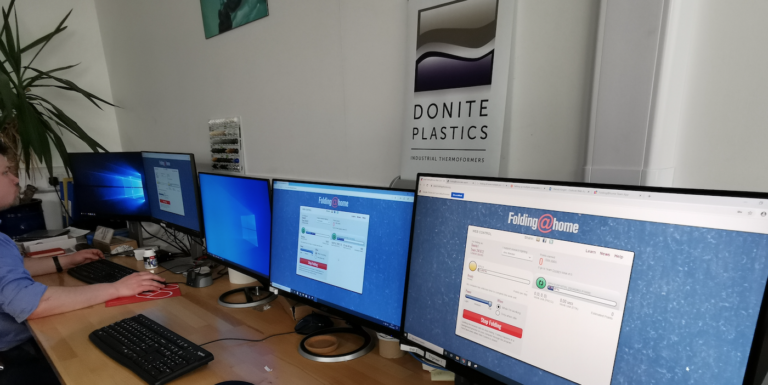Northern Ireland-based industrial thermoforming company, Donite Plastics, is lending its computer power to Californian research institute, Stanford University in the hope of finding a way to combat the virus.
The team of engineers at Donite Plastics designs products for manufacturing across various sectors including aerospace, agri-tech, public transport, construction and material handling, medical and film and television. The company uses computer-aided design (CAD) and computer-aided manufacturing (CAM) computers to design these products, are this technology is now also being used by scientists at the university to simulate how COVID-19 proteins react.
Stanford University’s scientists are running their software on Donite’s computers to gain a greater understanding of COVID-19’s protein structure and how it reacts, in an effort to help predict new ways of treating the virus and its symptoms.
Patrick Knight, quality manager and lead manufacturing engineer at Donite Plastics stated, “Once our engineers have completed their work during the day, we allow the scientists at Stanford University to use the graphics cards and processors on our high-spec CAD and CAM computers, which are usually a tool for our engineers to bring products to life before they are manufactured. Now these programmes are being used to give scientists a better picture of the protein structure of COVID-19 and they can hopefully work to establish how best to deal with the virus going forward.
“We really hope that the help we have been able to give is valuable to Stanford University’s scientists and we will continue to do all we can to help support them in their work. We encourage anyone with free processing power to visit foldingathome.org to start helping too.”





